The United States Military Academy at West Point was created in 1802 to train future army officers in the art and science of warfare. Over the years, West Point has graduated distinguished generals ranging from Ulysses S. Grant and Robert E. Lee to Dwight D. Eisenhower. But not every cadet was a shining success. Here are some famous men who flunked out, quit or otherwise gave up on West Point.
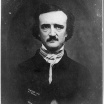 EDGAR ALLAN POE a Sergeant-major? It’s true. Poe already had published his first volume of poetry, Tamarlane and Other Poems, when he joined the U.S. Army as a private in 1827. He rose to the rank of Sargeant-major before earning a discharge in 1829. The next year, in 1830, Poe secured an appointment to West Point. Poe did well enough in his studies at first, but after feuding with his adoptive father, John Allan, Poe apparently let his studies slide deliberately. After a court-martial in January of 1831, Poe was dismissed from the academy and from the army.
EDGAR ALLAN POE a Sergeant-major? It’s true. Poe already had published his first volume of poetry, Tamarlane and Other Poems, when he joined the U.S. Army as a private in 1827. He rose to the rank of Sargeant-major before earning a discharge in 1829. The next year, in 1830, Poe secured an appointment to West Point. Poe did well enough in his studies at first, but after feuding with his adoptive father, John Allan, Poe apparently let his studies slide deliberately. After a court-martial in January of 1831, Poe was dismissed from the academy and from the army.
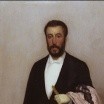 Another artistic type to flunk out of the academy was painter JAMES McNEILL WHISTLER. Whistler’s father had been a West Point man, and though Whistler already had shown artistic leanings, he too entered the academy in 1851 (thanks to a letter of endorsement from president Millard Fillmore). Whistler’s three years at West Point were rocky at best; he was an indifferent student and more than once was nearly drummed out for inattention to duty. After failing his chemistry exams at the end of his third year, Whistler finally was dismissed by the academy’s superintendent, Robert E. Lee. In later years, after Whistler gained fame as a painter, he enjoyed telling friends: “If silicon had been a gas I would have been a major general.”
Another artistic type to flunk out of the academy was painter JAMES McNEILL WHISTLER. Whistler’s father had been a West Point man, and though Whistler already had shown artistic leanings, he too entered the academy in 1851 (thanks to a letter of endorsement from president Millard Fillmore). Whistler’s three years at West Point were rocky at best; he was an indifferent student and more than once was nearly drummed out for inattention to duty. After failing his chemistry exams at the end of his third year, Whistler finally was dismissed by the academy’s superintendent, Robert E. Lee. In later years, after Whistler gained fame as a painter, he enjoyed telling friends: “If silicon had been a gas I would have been a major general.”
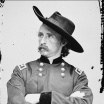 GEORGE ARMSTRONG CUSTER finished dead last in his class at West Point: 34th out of 34 cadets. In typical times such a finish would have smothered his career, and Custer’s Last Stand would never have become part of American history. But fate intervened: Custer graduated in 1861 and the Union Army was desperate for officers to fight in the Civil War. Custer got his chance and took full advantage, fighting at Bull Run and Gettysburg and rising to the wartime rank of Major General. After the war Custer headed west as a cavalry officer, finally leading his men to their doom at the hands of Sitting Bull at Little Big Horn in 1876.
GEORGE ARMSTRONG CUSTER finished dead last in his class at West Point: 34th out of 34 cadets. In typical times such a finish would have smothered his career, and Custer’s Last Stand would never have become part of American history. But fate intervened: Custer graduated in 1861 and the Union Army was desperate for officers to fight in the Civil War. Custer got his chance and took full advantage, fighting at Bull Run and Gettysburg and rising to the wartime rank of Major General. After the war Custer headed west as a cavalry officer, finally leading his men to their doom at the hands of Sitting Bull at Little Big Horn in 1876.
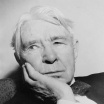 In 1898, CARL SANDBURG left a job as a printer’s apprentice to volunteer for the Spanish-American War. He didn’t see action, but the military connection led to a coveted appointment to West Point in 1899. Sandburg travelled to New York but he didn’t quite make it into the academy: he failed entrance exams in math and (ironically) grammar. A disappointed Sandburg returned to Illinios and Lombard College, where he began to write poetry in earnest. By 1916, instead of preparing to lead troops in World War I, Sandburg was releasing his first major collection of poetry: Chicago Poems.
In 1898, CARL SANDBURG left a job as a printer’s apprentice to volunteer for the Spanish-American War. He didn’t see action, but the military connection led to a coveted appointment to West Point in 1899. Sandburg travelled to New York but he didn’t quite make it into the academy: he failed entrance exams in math and (ironically) grammar. A disappointed Sandburg returned to Illinios and Lombard College, where he began to write poetry in earnest. By 1916, instead of preparing to lead troops in World War I, Sandburg was releasing his first major collection of poetry: Chicago Poems.
 Mister “Turn on, tune in, drop out” — a cadet? Sure enough, psychedelic psychologist TIMOTHY LEARY enrolled at West Point in 1940. Leary lasted a year and a half at the academy, spending a large part of that time in social isolation — “silenced” in West Point parlance — for drinking and other rules infractions. As Leary told the story, these periods of isolation were when he first began reading about Buddhism and other Eastern philosophies. (Years later he promoted more pharmaceutical means of mind expansion, most notably LSD.) Leary left West Point in 1942 and enrolled in the University of Alabama, where he was kicked out for sleeping over in a women’s dorm.
Mister “Turn on, tune in, drop out” — a cadet? Sure enough, psychedelic psychologist TIMOTHY LEARY enrolled at West Point in 1940. Leary lasted a year and a half at the academy, spending a large part of that time in social isolation — “silenced” in West Point parlance — for drinking and other rules infractions. As Leary told the story, these periods of isolation were when he first began reading about Buddhism and other Eastern philosophies. (Years later he promoted more pharmaceutical means of mind expansion, most notably LSD.) Leary left West Point in 1942 and enrolled in the University of Alabama, where he was kicked out for sleeping over in a women’s dorm.
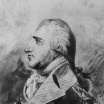 Honorable Mention: Before it became a military academy, West Point was a key fortress in the Revolutionary War — and it was West Point which American officer BENEDICT ARNOLD promised to deliver to the British in exchange for riches and a commission in the British military. Arnold’s devious plan was foiled when his confederate John Andre was caught and hanged as a spy. Arnold escaped to Britain with his life, but with his name marked in black as America’s most infamous traitor.
Honorable Mention: Before it became a military academy, West Point was a key fortress in the Revolutionary War — and it was West Point which American officer BENEDICT ARNOLD promised to deliver to the British in exchange for riches and a commission in the British military. Arnold’s devious plan was foiled when his confederate John Andre was caught and hanged as a spy. Arnold escaped to Britain with his life, but with his name marked in black as America’s most infamous traitor.
